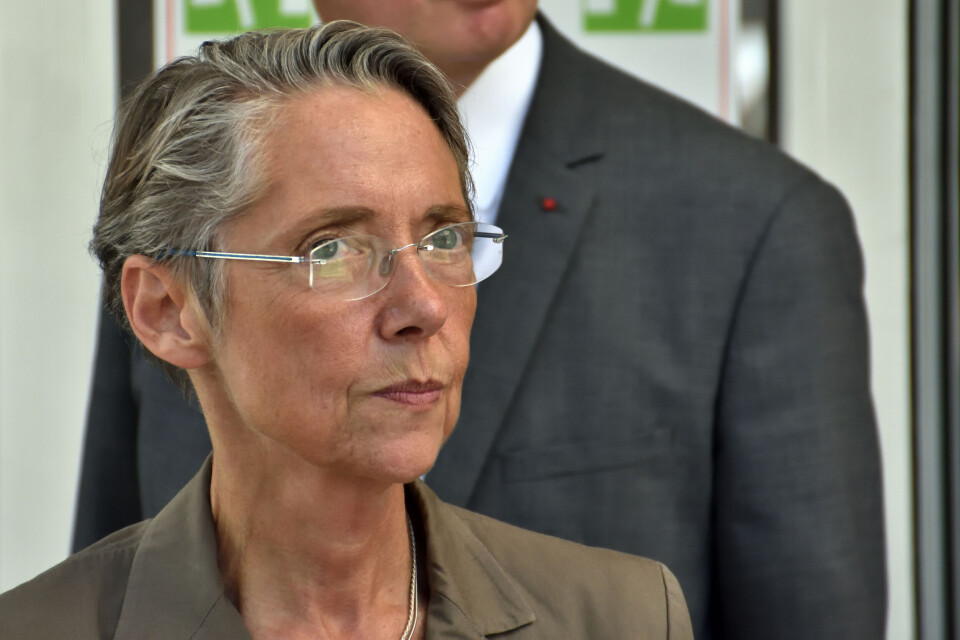-
Mysterious boom rattles residents in south-west France
Local community turns to social media for answers
-
France tightens reimbursement rules for flight delays or cancellations
New measures include mandatory mediation and new claim procedures
-
What snow conditions look like for skiers across French Alps and Pyrenees
Ski resorts are expected to get busier as school holidays begin this weekend
French PM to use infamous article 49.3 to push social security bill
The article is a way for the prime minister to push through legislation that does not have a majority parliamentary approval, but it is considered to be the risky ‘nuclear’ option

French Prime Minister Elisabeth Borne is set to use the controversial article 49.3 to push through her social security budget. It will be the third time that the Macron government has used the article.
Article 49.3 is a political mechanism that enables the sitting prime minister to unilaterally pass any bill on financial or social issues after discussion with the Conseil des ministres (Cabinet). It has become more relevant since President Macron’s government lost its parliamentary majority in the legislative elections.
Read more: Explainer: what is France’s article 49.3 and why is it in the news?
It can be a risky move, and has been described as using ‘the nuclear option’, because it could trigger the collapse of the government, if 58 opposition members sign a motion of no confidence (motion de censure) within 24 hours of the article’s use and a majority (289) of MPs then vote in favour of it.
If no motion is called, the bill is adopted. If a motion is called and a majority of MPs vote in favour, then the prime minister and government must resign.
However, no government in the Fifth Republic has ever fallen due to a vote of no confidence after the use of article 49.3.
Since reform in 2008, the use of article 49.3 has been limited to budgetary texts only, and one other text per parliamentary session.
‘Regrettable’
Ms Borne is now set to use the article to push through her projet de loi de financement de la Sécurité sociale (PLFSS, social security finance law).
She announced her intention last night (October 26), half an hour after left-wing Nupes alliance MPs had already left the Assemblée nationale in protest against “a masquerade” of a debate. They were later followed by Rassemblement National members.
She said: “I find it regrettable that the Nupes benches are empty in anticipation, even though I am citing measures that are wanted and called for, and in some cases have been called for over a long time by the left-wingers in this Assembly.”
.@Elisabeth_Borne annonce recourir au 49.3 sur la quatrième partie et sur l'ensemble du projet de loi de financement de la sécurité sociale.
— LCP (@LCP) October 26, 2022
"Tous les groupes d'opposition nous avaient fait savoir qu'ils ne voteraient pas le texte final", explique la Première ministre. #DirectAN pic.twitter.com/7wOKyVcquB
It will be the third time that the government has used the article on budgetary matters, after it did the same last week on the social security budget, and the state budget (PLF).
Depending on your political stance, article 49.3 can be seen as a helpful mechanism to push through important legislation, or as a way of pushing through unpopular changes and muzzling democratic debate.
In 2006, former French president François Hollande said: “Article 49.3 is brutality. 49.3 is a denial of democracy. 49.3 is a way of slowing down or preventing parliamentary debate.”
However, Mr Hollande then went on to use it when he got into power.
The article has been used 90 times since 1958, not including this new move by Ms Borne.
Prime Minister Michel Rocard, under the government of François Mitterrand, used it the most, at 28 times in three years (1988-1991).
Related articles
No confidence motions in government not passed by French Parliament
Article 49.3: French government prepares to push budget through today
Explainer: what is France’s article 49.3 and why is it in the news?
























